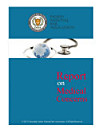Accessory Liability
Paul S Davies
ফেব ২০১৫ · Bloomsbury Publishing
ই-বুক
302
পৃষ্ঠা
reportরেটিং ও রিভিউ যাচাই করা হয়নি আরও জানুন
এই ই-বুকের বিষয়ে
Accessory liability in the private law is of great importance. Claimants often bring claims against third parties who participate in wrongs. For example, the 'direct wrongdoer' may be insolvent, so a claimant might prefer a remedy against an accessory in order to obtain satisfactory redress. However, the law in this area has not received the attention it deserves. The criminal law recognises that any person who 'aids, abets, counsels or procures' any offence can be punished as an accessory, but the private law is more fragmented. One reason for this is a tendency to compartmentalise the law of obligations into discrete subjects, such as contract, trusts, tort and intellectual property. This book suggests that by looking across such boundaries in the private law, the nature and principles of accessory liability can be better understood and doctrinal confusion regarding the elements of liability, defences and remedies resolved.
Winner of the Joint Second SLS Peter Birks Prize for Outstanding Legal Scholarship 2015.
Winner of the Joint Second SLS Peter Birks Prize for Outstanding Legal Scholarship 2015.
লেখক সম্পর্কে
Paul S Davies is an Associate Professor in Law at the University of Oxford and a Fellow of St Catherine's College, Oxford.
ই-বুকে রেটিং দিন
আপনার মতামত জানান।
পঠন তথ্য
স্মার্টফোন এবং ট্যাবলেট
Android এবং iPad/iPhone এর জন্য Google Play বই অ্যাপ ইনস্টল করুন। এটি আপনার অ্যাকাউন্টের সাথে অটোমেটিক সিঙ্ক হয় ও আপনি অনলাইন বা অফলাইন যাই থাকুন না কেন আপনাকে পড়তে দেয়।
ল্যাপটপ ও কম্পিউটার
Google Play থেকে কেনা অডিওবুক আপনি কম্পিউটারের ওয়েব ব্রাউজারে শুনতে পারেন।
eReader এবং অন্যান্য ডিভাইস
Kobo eReaders-এর মতো e-ink ডিভাইসে পড়তে, আপনাকে একটি ফাইল ডাউনলোড ও আপনার ডিভাইসে ট্রান্সফার করতে হবে। ব্যবহারকারীর উদ্দেশ্যে তৈরি সহায়তা কেন্দ্রতে দেওয়া নির্দেশাবলী অনুসরণ করে যেসব eReader-এ ফাইল পড়া যাবে সেখানে ট্রান্সফার করুন।







